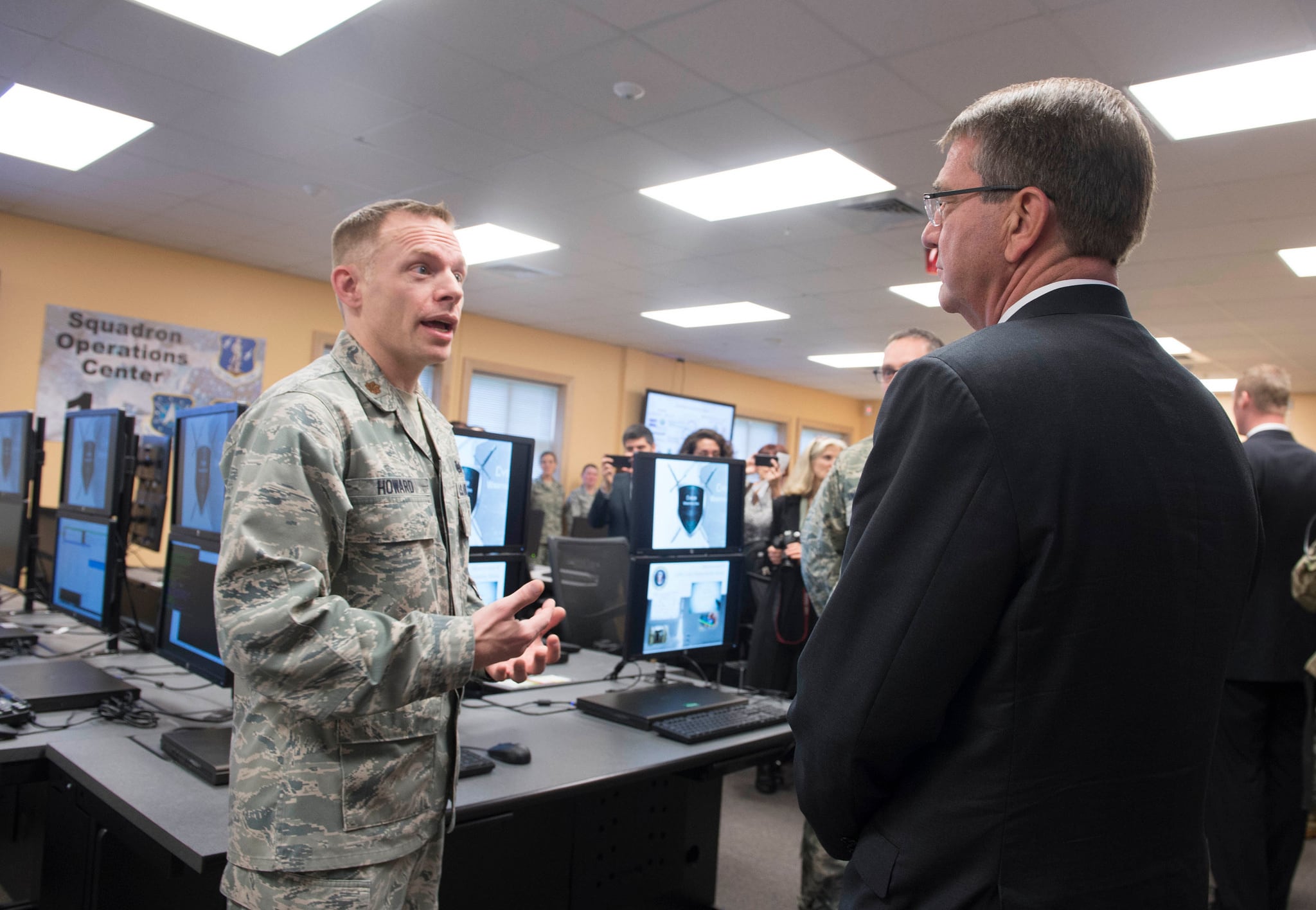WASHINGTON – In a bid to shore up an increasingly vulnerable energy grid around its military installations, Pentagon is considering putting new requirements into infrastructure contracts across the globe.
Lucian Niemeyer, assistant secretary of defense for energy, installations and environment, believes the energy grids that provide power to American installations is a particularly vulnerable point, and told Defense News in a November interview that he intends to address that issue any way he can.
“We’re here to find out what the most efficient and effective way we can get toward providing resilient power, [and] to provide redundant power to be able to allow us to continue to operate in case something happens to the grid,” Niemeyer said.
Any changes to the way military installations handle power will naturally take a while. In Niemeyer’s words, “it’s not something that can happen in a year.” But there are a few things his office is looking at to begin tackling the two key challenges on the table when it comes to securing the military’s power grid.
The first challenge is external, as the bases rely on the towns and cities around them to provide power and other resources. Those utilities are often more vulnerable to a cyberattack or terrorism than military installations; shutting down the local power grid that supplies energy to Fort McNair could be as effective as targeting the base itself.
That issue is part of a broader focus on cybersecurity being championed from both Niemeyer’s team and individuals at U.S. Cyber Command, and was one that received some focus from previous Secretary of Defense Ash Carter.
RELATED

The second key challenge, which Niemeyer has more direct control over, is ensuring that military installations have redundancies on base which would prevent such a scenario from shutting down operations, which is where Niemeyer thinks better contracts can make an impact.
He wants to see future requests for information and requests for proposals include requirements for building up energy resiliency or redundancy on installations.
One potential example would be to require those providing energy to the base to supply extra backup generators, or to create what Niemeyer calls a “microgrid” that would allow officials at the installation to reroute power to critical systems.
“Whatever we feel is necessary,” Niemeyer said when asking if there was specific language he wanted to include in upcoming contracts. “We’re not trying to apply a template, we’re just saying, ‘what does this base really need and what’s the most effective and efficient way to support those critical needs?’”
One potential contracting tool Niemeyer expressed interest in is what he called “energy as a service,” a model based on what Ohio State University recently launched with its Columbus campus.
In essence, that model locked Ohio State into a 50 year contract with the ENGIE-Axium consortium to provide heating, cooling and power support to its main campus, moving control of those operations away from the university. In exchange, the consortium donated up-front money to improve infrastructure and pledged to meet certain goals, such as reducing energy consumption by 25 percent over the next decade.
“We’re exploring that, to what degree we can restructure RFPs that would allow an entity to come in and provide a complete range of resources for us — not just power but infrastructure, resiliency, put it all into one RFP,” Niemeyer said. “Ohio State stands to benefit immensely from that commitment, that partnership. So we’re looking at how that could possibly [work] for the department of defense.”
The matter gets more complicated abroad, where U.S. installations are at the mercy of foreign governments to supply power via local grids. That issue was underlined in July 2016 when the Turkish government temporarily cut off power to Incirlik Air Base, a vital hub for the U.S. fight against ISIS.
Kunsan Air Base, located in South Korea, is currently taking a base-wide look at what “they need moving forward for investments that will allow them to have a little bit more energy security, and we fully support that,” Niemeyer noted.
“[We have to] work with the services and the host nations on coming up with ways to come up with redundant power or dedicated power, so there isn’t even the opportunity for an adversary to affect our ability to conduct operations by denying us the power,” he added.
The challenge facing Niemeyer’s team now is the simple reality that installation issues are always among the first things kicked to the right in budget fights, something the former Hill aide acknowledged is always going to be an issue for his area of expertise.
“I’m realistic, but optimistic,” he said when asked about getting budget support for his proposals. “What’s the alternative?”
Aaron Mehta was deputy editor and senior Pentagon correspondent for Defense News, covering policy, strategy and acquisition at the highest levels of the Defense Department and its international partners.








